You know that feeling where you give so much of yourself — your time, support, energy, and maybe even your money — and the other person just takes and takes… and then needs more?

Warner Bros. / Via giphy.com
Like they never learn from their mistakes? Like you suspect they maybe can’t even handle day-to-day things without you around? Like no matter how much time and effort you put into helping them get their shit together they still need more help?
Yeah, you know that feeling. So let’s talk about it: Where it comes from, why it happens, and how to stop giving so much of yourself to someone else that there’s not much left for you. Because it’s not in your head, but that doesn’t mean it’s inevitable.
For this story, BuzzFeed Life talked to Shawn Meghan Burn, Ph.D., professor of psychology at California Polytechnic State University and author of the forthcoming book Unhealthy Helping: A Psychological Guide for Overcoming Codependence, Enabling, and Other Dysfunctional Giving.
Here’s what you should know.
Helping and caretaking are important parts of any relationship. But some kinds of helping are less healthy than others.
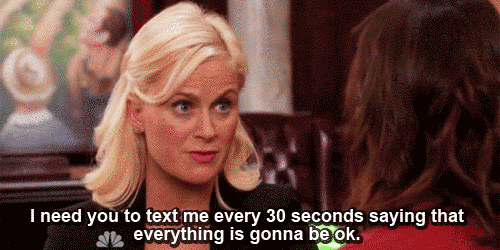
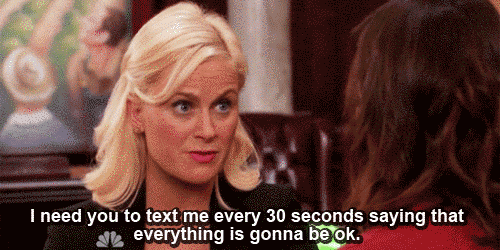
NBC / Via giphy.com
There are times when we really need a hand to get through something tough so we turn to someone close to us for assistance — maybe a shoulder to cry on, a loan so we can make rent, a car we can borrow, or some other favor. In a relationship where both people give and take equally there’s a mutual and healthy interdependence.
But some relationships are built on unhealthy helping, with one person doing all the giving and other other person doing all the taking, Burn says. This unhealthy helping dynamic is a classic symptom of codependent relationships.
Unhealthy helping in relationships typically involves two roles:
A helper who goes above and beyond (like, all the time)…
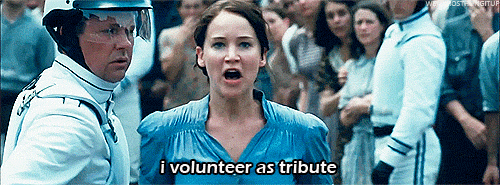
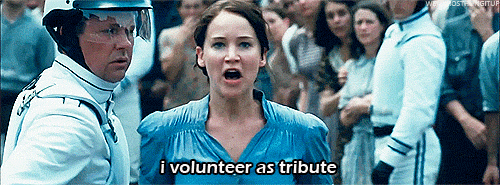
Lionsgate / Via giphy.com
And a person who needs to rescued (like, all the time).
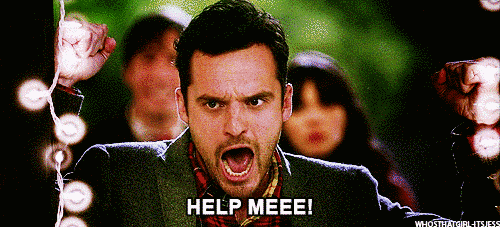
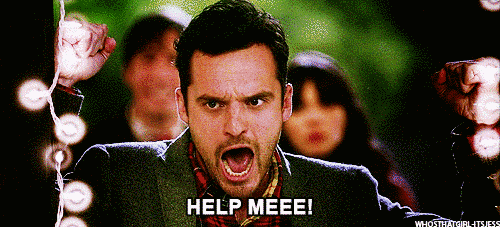
FOX / Via symonetownley12.tumblr.com
Any type of relationship can potentially be codepedent — romantic partnerships, between family members, and in friendships.
http://instagram.com/p/2mtbhVvfMS
Maybe your mom is always relying on you for everything and you’re stressed that if you don’t help her out she’ll completely lose it. Or maybe your partner keeps needing you to pay for every last thing in their life, or else they’ll be destitute (yet they still seem to find the spare cash to party, or go out and have fun and make bad decisions). Or maybe it’s a friend who just can’t get it together no matter what and is always calling you at the worst hours to help them out of a jam.
WHO it is doesn’t matter. The fact that it’s a cycle that never seems to change or end is the tip-off that something isn’t right here.
There are lots of signs that you might be the helper in one of these unhealthy helping relationships. For instance:
• Helping doesn’t feel just a nice thing you do, it’s feels like your responsibility. Feeling like it’s your job — and yours alone — to “fix” someone is a sign of codependence.
• You’re the permanent caretaker. In codependent relationships, one person is doing all the caring, the other person is doing all the taking and the relationship revolves around this dynamic.
• You’re convinced they’d be utterly lost without you.
• You show love and affection by doing favors. There are a million ways to show someone you love them but for unhealthy helpers, there’s only one way: by continuing to give.
• You feel burned out on how much effort you’re putting in. Codependent helpers “provide support beyond their means either financial or energetic,” Burn says.
• You spend so much time solving other peoples’ problems that you tend to neglect your own. Burn explains that the high you get from solving the problems of others makes you want to keep helping more and more, over and over. Unfortunately, Burn explains, this leaves you little time or energy to tend to your own needs. As a result your own needs go untended.
And being the caregiver in a codependent relationship can make you feel pretty bad about yourself, tbh.
• You’re sure that the only good thing about you is what you can do for people. Many people who are codependent have low self-esteem, says Burn, and aren’t convinced that people will be in relationship with them unless they give everything.
• Any sense of fulfillment you have comes from always going above and beyond for others.
• You never feel closer to someone than when you’re rescuing them or bailing them out.
• It seems you’re helping solve problems that the person is bringing on themselves, which can make you feel just so frustrated and angry and hurt and confused and drained. Dysfunctional helpers and people who can’t get out of their own way make a great (/not-so-great) team. Why? Because someone who can’t get their shit together gives the codependent helper someone to pour love, effort, time, money, and energy on indefinitely.
• It seems like the more you help, the less they get their shit together. And this can really make you feel taken advantage of. Codependent helpers often end up feeling frustrated and hurt because they provide assistance over and over only to have the person they’re helping not use those resources wisely and eventually require more help, Burn says.
And even though it makes you feel garbage-y, you might find yourself in relationships like this more often than not.
That’s because, to some extent, you might actually be drawn to people who need help, Burn says. Because you’re not only good at helping but because the validation of knowing that you’re responsible for picking up the pieces and putting someone back together, of being someone’s hero, gives you a sense of purpose and fulfillment that might be otherwise hard to come by.
Are you nodding your head so hard right now? If so, don’t panic.


20th Century Fox / Via giphy.com
You can unlearn unhealthy helping, and you can also learn to set healthy limits in your relationships. The key is a combo of understanding why helping makes you feel so damn good in the first place, and then adjusting your outlook.
Burn says that if we look at codependent helping as a behavior that can be changed (as opposed to just the way we are), you can learn how to recognize when you’re helping in an unhealthy way, and even how to spot a “taker.” Starting there, and then adding self-care, therapy, and practice, unhealthy helpers can break the habit.
Burn emailed BuzzFeed Life with a bunch of different ways unhealthy helpers can start to learn about and break their codependent habits. Here’s what she suggested:

• Join a support group “Some people benefit from codependence support groups and if their codependence is specific to enabling an addict/alcoholic, they may benefit from Al-Anon support groups (like AA but for people in relationships with addicts/alcoholics,” Burn says.
• Seek counseling Therapy can help you figure out and even resolve any underlying issues that might be contributing to your codependence, Burn says. It can teach you to find other ways to satisfy your need to feel validated or needed, and it can also help you figure out how to get out of unhealthy one-sided relationships, if that’s what it takes. Also this: “[You] may need to explore whether [your] behavior is part of an unhealthy family pattern and how [you] can stop it,” Burn says.
• Try cognitive-behavioral therapy (CBT) CBT “helps address the maladaptive thinking that leads to unhealthy helping and giving,” Burn says. It’s about recognizing thought and behavior patterns, and figuring out how change your behaviors in specific ways, so that you end up getting different outcomes and can break the cycle one step at a time.
• Educate yourself about self-help Burn recommends two books: Your Perfect Right, which can help with assertiveness and boudary setting, and Ten Days to Self-Esteem, which is a self-help book that can help you learn tricks to improve your self-confidence.


















